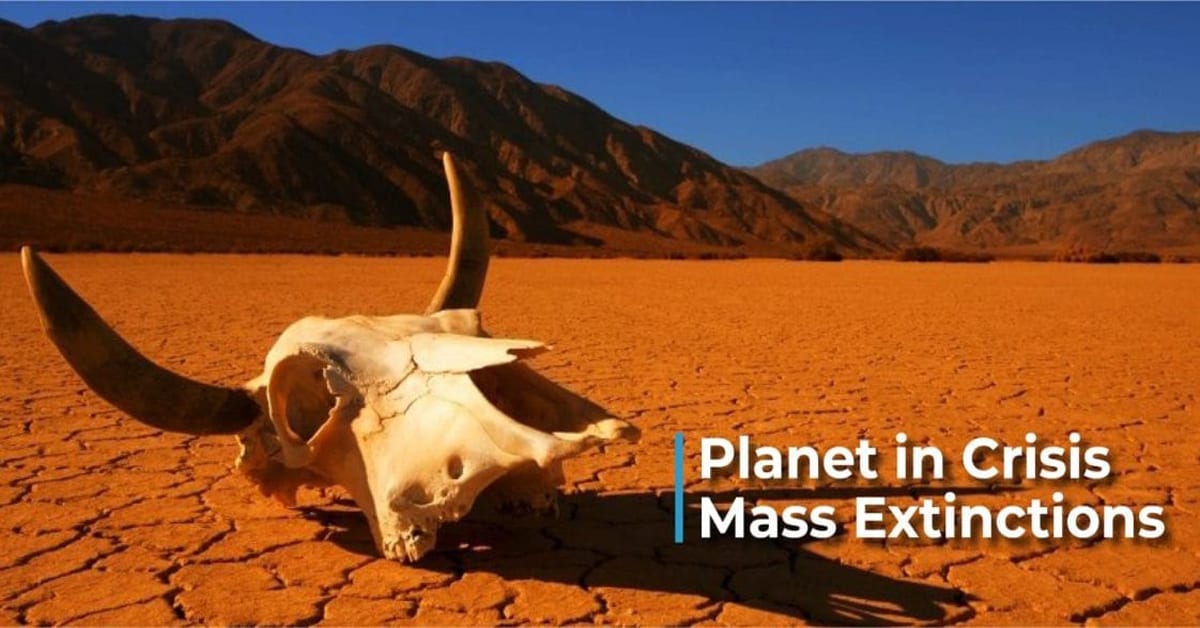Extinction is an alarming word. It is not something that we’re accustomed to. However, it is a reality that we should accept. We have now reached the sixth mass extinction of both plants and animals.

Even if extinction is considered to be a natural phenomenon, this planet is losing animals and plants 1,000 times faster than the anticipated number. What does it mean? Numerous species goes extinct every single day. Sadly, only 30% to 50% of species are estimated to live by the mid-century. With this, it would pose a threat in food supply, thus creating a consequence to the ecosystem.
DRIVING FORCE? HUMAN ACTIVITIES
Everyone would think that extinctions occur naturally, that this extinction is caused by natural phenomena such as volcanic eruptions or climate change. Well, with today’s condition, this is not the case. The rapid deaths of these species are caused by human activities. Human activities that sustain our lifestyle equates to the loss of habitat of our plants and animals. Their loss leads to creation of exotic species and increases the adverse effects global warming.
The presence of every animal is vital for the ecosystem. Their presence keeps the ecosystem stable, regardless of their sizes and shapes. Any of their extinction would breach the food chain supply, and if that happens, the aftermath would be an imbalance ecosystem. With this dysfunction, losing flora and fauna species would be likely, other species of living animals and/or plants will eventually fade from the record.
RISING EXTINCTION TOLLS
Scientists discovered that animals under the Amphibian family are rapidly increasing in extinction. At the present, 6,300 species are already in endangerment. You may not realize it but the frogs, toads and salamanders that you grew up with are actually becoming extinct. If you hate frogs and toads, this may not alarm you, but you’ll eventually realize their importance to our nature. They lost their homes due to human expansion towards their areas. Worse, water and air pollution due to the chemicals produced by machineries invented over time left them with no choice, but to fled and die. These animals cannot also withstand harmful UV rays and above normal changes in climate.
Birds also showed depletion wherein 31% or 251 out of its 800 species are already on conservation. The decrease in their population can affect how we track the changes in the biosphere of the planet. Fish, one of our major sources of food for survival, is also now considered on the line of endangerment due to the high demand of water globally, and of course, water pollution. The high global demand for water and marine resources leave little to none food and habitat for these species. Sharks and rays, which we considered monsters of the sea also reported to be extinct as they are illegally exported in some parts of the world.
Butterflies, corals, and earthworms that all belong to the invertebrates family are already facing extinction. Moreover, 90% of the primates, considered as the closest relatives of humans, are also already endangered. Monkeys, tarsiers, and lemurs are disappearing fast with 50% of it are already at risk of becoming extinct. Reptiles also have been reported to be susceptible to extinction with 32 of its kind already endangered due to the creation of establishments that used to be their home and source of food. Enough of animals, our plants are affected as well. Plants produced oxygen and food for our daily survival, and they also contain medicinal properties which are essential to our life, but now more than 13 thousand of it is to become extinct.
IS IT TOO LATE?
With the various factors that negatively affect our plants and animals, the foundations of our ecosystem, we should be prepared. We should expect for upcoming catastrophic events, as the payments for what we did as mankind. Now, the time is running fast, it’s still not late to reflect and discern. Start assessing your lifestyle, connect with nature and begin in conserving what is left on the planet by becoming the catalyst yourself.





2 Comments
Leave a Reply2 Pings & Trackbacks
Pingback:Planet In Crisis: Work At Risk From Climate Change - Zero Waste Lifestyle System
Pingback:Planting Trees 101: Should This Be Mandatory For Students And Companies? - Zero Waste Lifestyle System